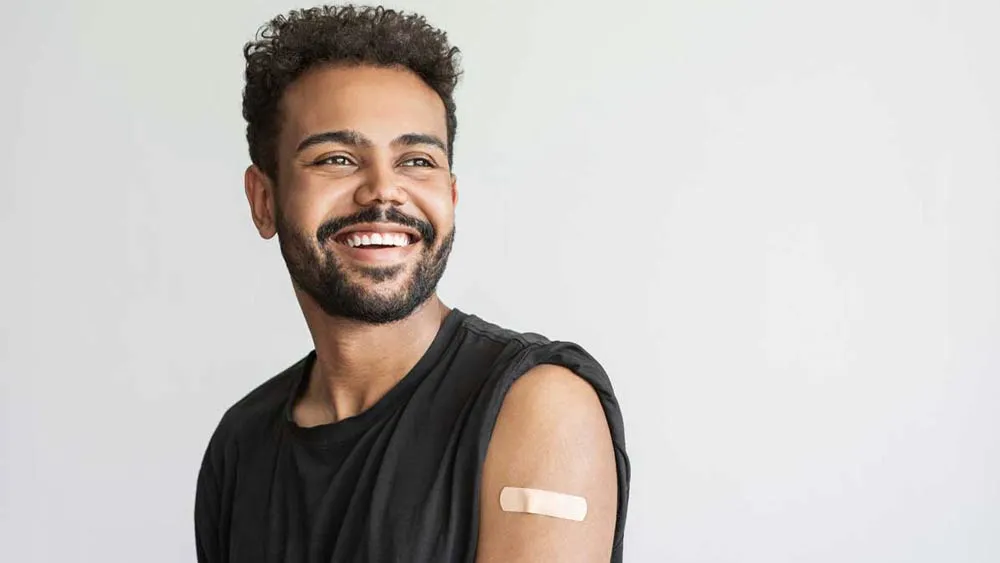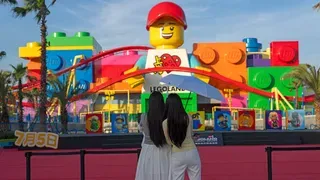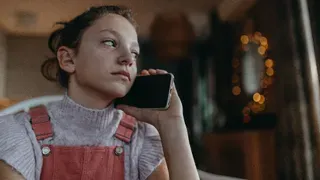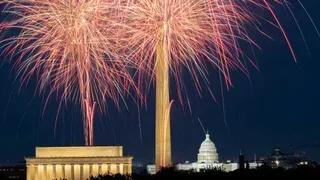July 19, 2007
Phill Wilson leads Dorchester march against AIDS
David Foucher READ TIME: 4 MIN.
Calling HIV/AIDS in America "a black disease," Phill Wilson, the founder and executive director of the L.A.-based Black AIDS Institute, called on participants in a small march and rally in Dorchester on July 14 to help end the epidemic in the black community within five years.
Wilson, an openly gay black man who has been living with HIV for 26 years - the last 15 with full-blown AIDS - said that while there is no cure in sight and a vaccine is probably 15 years away, the HIV/AIDS infection rate in the black community could be cut by 50 percent. He ticked off a list of actions on the road to achieving that goal: "We can increase the percentage of folks who know their HIV status in our communities. We can increase it by 50 percent. We can encourage all of our family and friends to know their HIV status. We can make sure that folks in our community are in treatment - both that they have access to treatment and that they utilize treatment."
Wilson also cited a need to reduce the "debilitating stigma that undermines our ability to fight AIDS in our community," and stressed the need for members of the black community to get involved. "How many churches did we pass in this march today?" Wilson asked. "Every one of those churches should be a part of this rally next year." He told the scant crowd that had gathered outside of the Blue Hill Boys and Girls Club for the rally that there should be 1000 people at next year's rally. "Every one of you should make sure that when you come back next year you bring 10 people. Ten people.
"We need our folks to come out," said Wilson. "AIDS is a critical issue and yes, it is a health issue, but it's also a civil rights issue, it's a human rights issue, it's an urban renewal issue, it's an issue that we have to be there for because if we have any hope, any prayer of reaching racial equality and racial justice, we have to end this AIDS epidemic. An army decimated by disease cannot fight. A dead people cannot reap the rewards of a victory won."
Wilson delivered his remarks at an event sponsored Healing Our Land, Inc., a faith-based nonprofit organization dedicated to stopping the spread of HIV/AIDS headquartered in Dorchester. The late-morning march, which made its way down Washington Street from its starting to point at Grace Church of All Nations, onto Columbia Road and down Blue Hill Avenue to the rally site, attracted just about 25 people, including Boston City Councilors Chuck Turner and Charles Yancey, both of whom represent parts of Dorchester.
Healing Our Land Executive Director Rev. Franklin Hobbs attributed the low turnout to a loss of momentum resulting from the fact that the event was not held last year. The organization, which operates on an all-volunteer basis with minimal resources, had staged similar marches for the previous six years.
Like Wilson, Hobbs called for a greater involvement in Healing Our Land's efforts to end the epidemic, singling out members of the LGBT community specifically. "HOL is a safe place where you can come and you can raise your voice gay, straight, lesbian, transgender, bisexual; whoever you are you're welcome to come into this movement," Hobbs said from the stage. "In fact, you're not only welcome but we need your voice so that we have a comprehensive movement that addresses all facets of humanity."
Wilson offered some sobering statistics about the impact of HIV/AIDS in the black community: Black people represent roughly 12 percent of the U.S. population yet they comprise nearly 50 percent of the 1.2 million Americans living with HIV/AIDS today. They also represent nearly 54 percent of the country's new HIV/AIDS cases. "No matter how you look at it - through the lens of gender, sexual orientation, age, socio-economic class, education or region of the country where you live, black folks bear the brunt of the AIDS epidemic in this country. When you look at youth we're two-thirds of the new HIV/AIDS among youth," said Wilson. "When you look at men we're 40 percent of the new HIV/AIDS cases among men. When you look at gay men we're 30 percent of the new HIV/AIDS cases among gay men. And when you look at women, black women represent nearly 70 percent of the new HIV/AIDS cases among women in this country. AIDS in America is a black disease."
Moments after he concluded his remarks, Wilson returned to the stage and interrupted one of the event organizers as he delivered a polite fundraising pitch. "It takes money and Healing our Land does not have money so we need to make sure that they have money to do the work that they need to do," said Wilson producing his wallet. "I'm going to empty out my wallet," he said, pulling out $40. He then implored others in the crowd to match his donation, which one person quickly did. Wilson then urged $20 donations and $15, $10 and $5 contributions. He worked his way down to 50 cents. "I know that your life is worth 50 cents," said Wilson. A curly-headed baby in camouflage shorts toddled over to pony up a quarter given to him by his mother. Wilson kept on: "Give a brother a dime," he urged, squeezing another 30 cents out of the crowd. When all was said and done, Wilson had raised $297.25 for Healing Our Land.
"Now does everybody feel good that you made a contribution to save your life?" Wilson asked. "Let me tell you something. Let me tell you something, okay? It's time for us to stop waiting for somebody else to save us."
David Foucher is the CEO of the EDGE Media Network and Pride Labs LLC, is a member of the National Lesbian & Gay Journalist Association, and is accredited with the Online Society of Film Critics. David lives with his daughter in Dedham MA.







